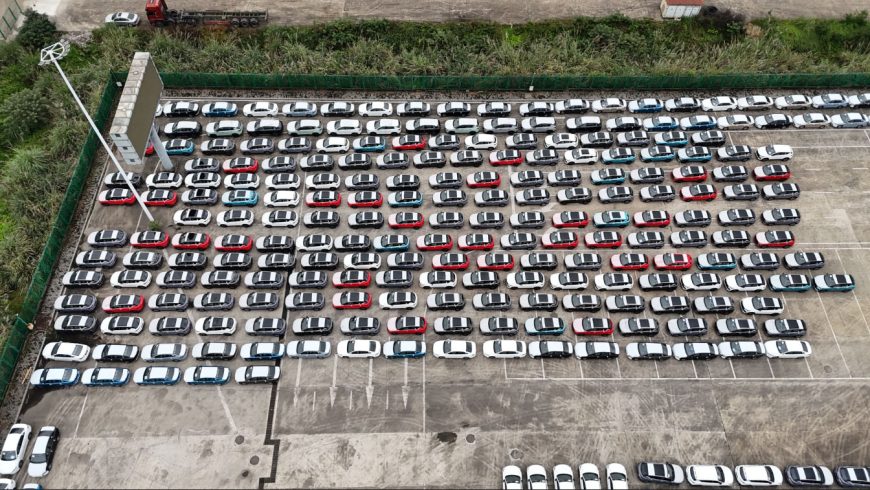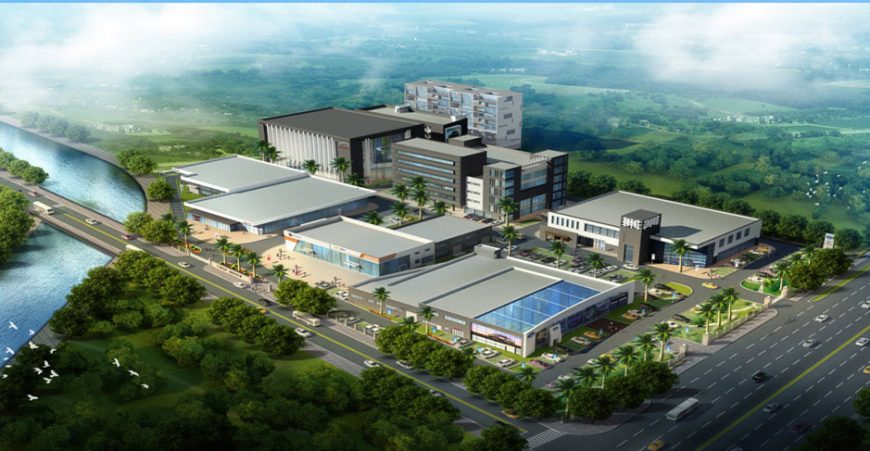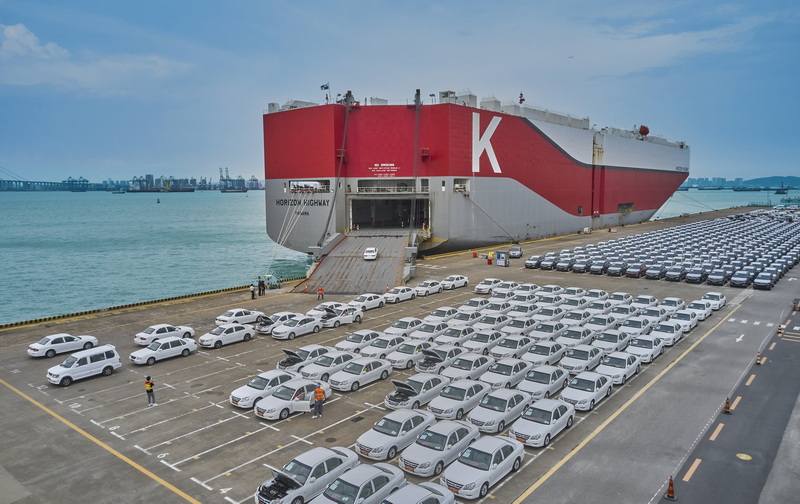In China, what kind of cars are prohibited from being exported?
Nowadays, the car export business in China is booming. The majority of it is parallel export, which means first purchasing brand new cars and then exporting them in the form of used cars.
In order to safeguard various interests and ensure safety, the Chinese government has imposed some necessary restrictions on the export of used cars.

The following are the circumstances under which the export of used cars is prohibited
(1) Vehicles that meet the scrapping standards specified in the “Motor Vehicle Mandatory Scrapping Standard Regulations” and vehicles that have been used for less than one year (including one year) from the prescribed scrapping deadline;
(2) Vehicles under mortgage, pledge, or under customs supervision;
(3) Vehicles that are seized or detained by supervisory organs, people’s courts, people’s procuratorates, or administrative law enforcement departments in accordance with the law;
(4) Vehicles obtained through illegal and criminal means such as theft, robbery, or fraud;
(5) Motor vehicles with discrepancies between the information recorded in the motor vehicle registration certificate and the actual vehicle;
(6) Smuggled or illegally assembled vehicles;
(7) Vehicles with incomplete statutory certificates or vouchers;
(8) Vehicles with unqualified inspection results;
(9) Vehicles with unresolved road traffic safety violations or traffic accidents;
(10) Other vehicles prohibited from trading or exporting by laws and regulations.
The above are the standards for cars prohibited from export. If you don’t know where to buy a reliable car, then you’ve come to the right place on our website.
Related articles:
Concepts and processes related to China’s used car export
What conditions do enterprises need to meet to export used cars in China?
Used Car Export Car Inspection Content
What conditions do enterprises need to meet to export used cars in China?
In China, enterprises applying to engage in the export of used cars must meet the following conditions:

(1) Manufacturing Enterprise
1. Registered within the territory of the People’s Republic of China with independent legal personality;
2. Listed in the Announcement of Road Motor Vehicle Manufacturing Enterprises and Products by the Ministry of Industry and Information Technology;
3. Export products produced by the enterprise;
4. The enterprise operates legally and in compliance with laws and regulations on safety production, environmental protection, taxation, customs, and foreign exchange management, with no outstanding violations to be rectified and no serious breaches of trust.
(2) Circulation Enterprise
1. Registered within the territory of the People’s Republic of China with independent legal personality;
2. Has fixed business premises and used car display and sales venues, with experience in automobile sales or trade;
3. Possesses the capability for used car appraisal and assessment, employing at least three professional appraisal and assessment personnel;
4. The enterprise operates legally and in compliance with laws and regulations on safety production, environmental protection, taxation, customs, and foreign exchange management, with no outstanding violations to be rectified and no serious breaches of trust.
Related articles:
Concepts and processes related to China’s used car export
In China, what kind of cars are prohibited from being exported?
Used Car Export Car Inspection Content
Chinese Used Car Export Related Concepts
(1) Concepts of Used Cars and Used Car Export Enterprises:
A used car refers to a vehicle that has been traded and transferred ownership from completing the registration procedures until reaching the national mandatory scrapping standards (excluding tricycles and low-speed cargo vehicles) and trailers.
A used car export enterprise refers to an enterprise registered and engaged in the export of used cars within the territory of the People’s Republic of China.

(2) Basic Business Processes of Used Car Export:
1. Nationwide Vehicle Collection:
Acquire vehicles domestically, sign trading contracts; clear vehicle transaction procedures with complete documentation; export tax refunds must have value-added tax special invoices; used cars with more than one year before the scrapping period.
2. Transfer for Export:
Lawfully transfer used cars to be exported at the vehicle management office or registration service station; verify the legality of vehicles to prevent illegal vehicle transactions; transfer to be exported should be conducted in the name of enterprises with qualifications for used car exports; annotate “Transfer for Export” on the motor vehicle registration certificate; for vehicles acquired from different places, there is no need to return to the city where the export enterprise is located for transfer.
3. Refurbishment and Preparation:
During the vehicle preparation period and before customs clearance, export enterprises should establish pre-export supervision measures to prevent illegal use and operation of vehicles; based on customer requirements and the enterprise’s refurbishment standards, beautify the appearance and interior of vehicles, improve performance, and make necessary modifications.
4. Export License:
Apply for an export license through the “Unified Platform for Business Systems of the Ministry of Commerce” enterprise side; for each batch, submit an export license application form, original or scanned copy of the Motor Vehicle Registration Certificate, export sales contract, product inspection report issued by a third-party testing agency, a self-declaration of no uncorrected illegal activities or serious dishonest acts by the agency, a declaration that the exported vehicles meet the access standards of the target export market (stamped with the enterprise seal), and a “Commitment Letter of Used Car Export Enterprise”; one license per batch (20 vehicles).
Special Note: The number of license applications should match the actual quantity for customs clearance (the actual quantity for customs clearance should not exceed or be less than the number of licenses). Clearance should be completed in one go; if the declared quantity is less than the applied quantity, a new license should be applied for (i.e., the original license is cancelled and a new one is processed. It should not be misunderstood as reapplying for a license for the remaining unexported vehicles).
5. Warehouse Booking and Port Collection:
Commission freight forwarders to book shipping schedules and warehouse space; freight forwarding companies can be responsible for the entire process of transit logistics and port collection and shipment; at least one week before customs declaration, vehicles should enter the port customs supervision area.
6. Export Customs Declaration:
Apply the national customs clearance integration model; enterprises can independently choose the place of export customs declaration and exit port; enterprises can declare customs through the local single electronic window; customs conduct inspection, release, and subsequent management; customs declaration requires documents such as the Used Car Export License, sales contract, invoice, packing list, product inspection report issued by a third-party testing agency, a self-declaration of no uncorrected illegal activities or serious dishonest acts by the agency, a declaration that the exported vehicles meet the access standards of the target export market (stamped with the enterprise seal), etc.; for customs clearance in some destination countries, an “Certificate of Origin” is required, which can be obtained through contact with provincial/municipal CCPIT.
7. Vehicle Deregistration:
Within two months after the completion of customs export procedures (it is recommended that enterprises start counting from the day of handling the transfer of vehicles for export and complete the cancellation procedures within 60 days), apply for deregistration to the public security traffic management department in the city where the enterprise is located or where the motor vehicle is registered, with the export declaration form and relevant certificates prescribed by laws and regulations; before applying for vehicle deregistration, traffic safety violations and traffic accident issues involving exported vehicles should be resolved.
The above business processes and related procedures are for reference only, and actual operations should be based on the actual situation.
It is worth mentioning that the new cars sold on guangcaiauto.com are also exported in the name of second-hand cars and go through the second-hand car export procedures. You can also call it parallel import, which can save you a lot of money.



